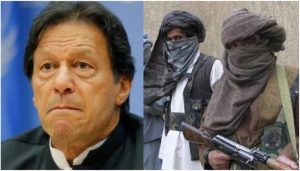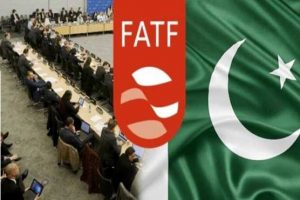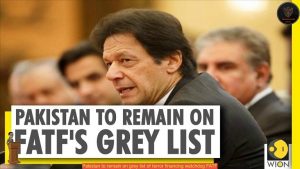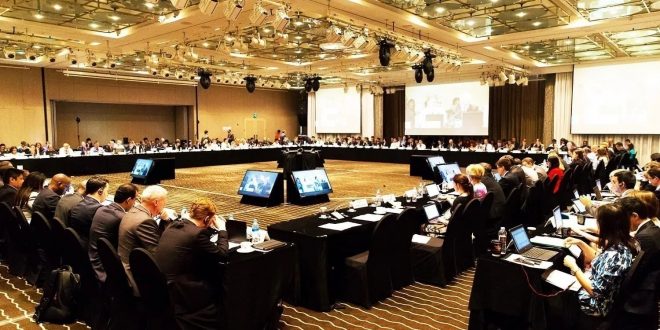24-10-2020
By SJA Jafri + Bureau Report
 ISLAMABAD/ PARIS: Pakistan will remain on a terrorism financing watch list until it completely implements a set of preventive guidelines, a global watchdog said, urging Islamabad to improve financial controls.
ISLAMABAD/ PARIS: Pakistan will remain on a terrorism financing watch list until it completely implements a set of preventive guidelines, a global watchdog said, urging Islamabad to improve financial controls.
The Financial Action Task Force (FATF), an inter-governmental body, praised Pakistan for progress on 21 of 27 recommendations but said the rest must also be implemented.
Last February, Pakistan secured an extra four months to complete the plan after missing 13 of the 27 targets that FATF had set for it in 2018 when it put Pakistan on its “grey list”. The grace period was then extended again because of the coronavirus pandemic.
The so-called “grey list” comprises countries whose controls over “terrorism” financing are deemed inadequate.
“The government of Pakistan has signalled its commitment to complete the rest of its action plan. But it is clear even  though Pakistan has made progress, it needs to do more,” FATF President Dr Marcus Pleyer said at the conclusion of a virtual meeting in Paris on Friday to discuss global financial systems including terror financing.
though Pakistan has made progress, it needs to do more,” FATF President Dr Marcus Pleyer said at the conclusion of a virtual meeting in Paris on Friday to discuss global financial systems including terror financing.
“Pakistan cannot stop now. It needs to continue to carry out reforms, in particular to implement targeted financial sanctions and prosecute and sanction those financing terrorism.”
Pakistan’s Foreign Minister Shah Mehmood Qureshi said ahead of the decision that regional rival India was lobbying for downgrading the country to a more punitive “blacklist”.
The Asia Pacific Group, a regional affiliate of the watchdog, had recommended keeping Pakistan on the grey list because there were still risks of terrorism financing going undetected.
 Pakistan’s powerful military is often accused of harboring fighters to use them as proxies against India and neighboring Afghanistan.
Pakistan’s powerful military is often accused of harboring fighters to use them as proxies against India and neighboring Afghanistan.
Pakistan had been on the FATF blacklist for years before it was removed in 2015 following “significant progress” in fighting terror financing. Only Iran and North Korea are currently on the blacklist.
Pakistani Prime Minister Imran Khan, elected in 2018, has been struggling to stamp out threats from armed groups while coming under pressure over painful austerity measures taken to rectify a shaky economy and conform to the terms of its latest International Monetary Fund (IMF) bailout.
Separately on Friday, Iceland and Mongolia were taken off FATF’s list of countries under increased monitoring.
The Paris-based organization also said that fraud linked to coronavirus pandemic was on the rise, with counterfeit medical supplies, economic stimulus measures and online scams hitting governments hard around the world.
 Pressmediaofindia
Pressmediaofindia




